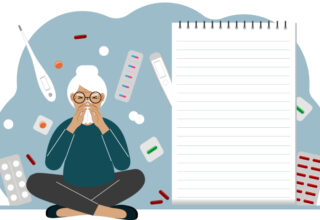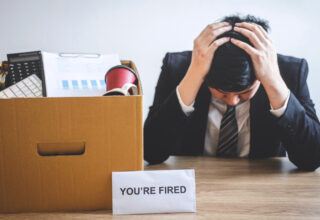Taking time off due to illness is stressful enough. Coming back to work can sometimes feel even harder. You might be wondering how your body or mind will cope, what your employer will say, and whether your job is still secure.
Let’s understand returning to work after sick leave in Ireland. What are your rights, what a typical return-to-work process feels like, and how to protect your health when you go back.
Your Rights When Returning to Work After Sick Leave
Returning to work after sick leave in Ireland can feel overwhelming. But the process becomes easier when you understand your rights.
Protection from Negative Treatment
Employees should not be punished, demoted, or treated unfairly for using legitimate sick leave.
According to the Workplace Relations Commission (WRC), employees may not be penalised or threatened with penalisation for taking statutory sick leave.
If you’re worried about being challenged over your sick cert, you may find this helpful: Can an employer override a doctor’s sick cert?
Fair Procedures in Long-Term Illness Cases
There’s no automatic dismissal period for long-term absence. Employers must follow a fair, transparent, and evidence-based process, which includes medical assessments and consideration of reasonable alternatives.
According to the Citizensinformation.ie: “Your employer should have disciplinary procedures in place, which must be followed when considering dismissal.”
Learn more here Long-term sick leave Ireland.
Reasonable Accommodations (Where Applicable)
If your illness qualifies as a disability, you may have the right to assistance through reasonable accommodations, such as adjusted duties or reduced hours.
This obligation is set out in Section 16 of the Employment Equality Act 1998. According to that: “An employer shall do all that is reasonable to accommodate the needs of a person who has a disability by providing special treatment or facilities”
Preparing to Return: What to Do Before Your First Day Back
Returning to work is a transition not an on/off switch. A well-planned return supports your confidence, routine, mental well-being, and recovery.
Returning to Work Preparation Checklist
Here’s a simple checklist that can help you get ready to return to work:
- Check with your GP or specialist to confirm fitness for work and any limitations
- Get notes or medical documentation (if required)
- Re-review your workplace policies
- Identify job tasks you may need help with
- Prepare discussion points for your return-to-work meeting to reduce anxiety and miscommunication
- Look after yourself. Self-care plays a major role in how ready and confident you feel while returning to work.
What Usually Happens When You Return to Work After Sick Leave
1. Return-to-Work (RTW) Meeting
It’s quite common for your manager or HR to invite you to a return-to-work meeting on or shortly after your first day back. It’s normally a short, supportive discussion, not a disciplinary one.
It may cover:
- A brief recap of why you were off (you don’t have to share every personal details, stick to what’s relevant to work)
- How you’re feeling now and any ongoing limitations
- Whether you’re fully or partially fit for work
- Any recommended workplace adjustments (hours, duties, equipment)
- What support is available such as Employee Assistance Programs (EAP), HR, and colleague support
2. Occupational Health Assessment (If Required)
For longer or more complex illnesses, your employer might ask you to attend an Occupational Health (OH) assessment.
It’s there to:
- Review your health in the context of your job
(According to the RDJ.ie, “Employers also have obligations under the Safety, Health and Welfare at Work Act 2005 to ensure that an employee is fit to attend at work.”)
- Suggest adjustments or restrictions
- Comment on your fitness to work
- Help plan a safe and sustainable return (or sometimes advice that return isn’t appropriate yet)
The purpose of this assessment is safety and clarity. You can receive a copy of the report and have your own GP’s views considered too.
3. Monitoring and Review
Employers may set review dates or regular follow-ups to ensure that you’re coping and the adjustments are appropriate.
These follow-ups are meant to check-in on your progress—not judge you—and adjust support when needed.
Phased Return and Workplace Adjustments
A phased return to work gradually reintroduces you to your job, typically after long absences due to illness or injury.
This can help prevent overwhelm, burnout, relapse, and worsening of your medical condition.
Examples of phased approaches include:
- Reduced duty hours for a number of weeks
- Light-duty or alternative tasks
- Hybrid or remote working
- Flexible start and finish times
- Additional rest periods
Reasonable accommodations may also include ergonomic equipment or adjusted workspace.
Practical Tips for Your First Week Back
Here are a few simple and practical tips that can help your return to work:
- Start small socially. It’s ok if you don’t feel like explaining your illness to everyone at work. Most of the time, a simple and polite “I was dealing with some health issues, but I’m doing better now, thanks” is enough.
- Pace yourself. Don’t use the first week back to “prove” you’re okay by overdoing it.
- Use your breaks. Step away from your desk or work area, your brain and body are still adjusting.
- Keep track of your symptoms. If your health worsens after certain tasks, note them down. It’ll help you and your doctor adjust your plan.
- Review the plan with your manager after a few weeks. Do a quick follow-up chat about what’s working, what’s not, and do any adjustments need tweaking?
And importantly: You’re allowed to change your mind. If you realise the agreed plan is too much (or not enough challenge) you can ask to review it.
If you’re unsure about your rights contact your HR department or occupational health team.
If You’re Not Ready to Return
Sometimes as the return-to-work date gets closer, you don’t feel as good as the recovery was expected and you’re not ready to join back work.
If that happens:
- Talk to your GP or specialist and get updated medical evidence
- Send new sick note/sick cert to your employer as soon as possible
- Suggest a further review date rather than leaving things open-ended
It’s safer to reassess than to risk a setback.
If you’re unsure about your rights contact your HR department or occupational health team.
Many employees feel guilty or anxious about extending their leave, even when medically necessary—a feeling described as sick note paranoia. Read more here Sick Note Paranoia.
Often yes, especially after a long-term or medically complex illness.
They can refuse it if it’s genuinely not feasible, but they should consider it.
- Doctor’s medical license number and registration details
- Qualified Electronic Signature (QES) for authenticity
- Unique reference number for verification
- QR code linking to our verification portal
These documents meet all legal requirements for medical documentation in the EU.
Yes, but only after a fair, evidence-based process and consideration of reasonable accommodations.
No, only what affects your ability to work (limitations, restrictions)








